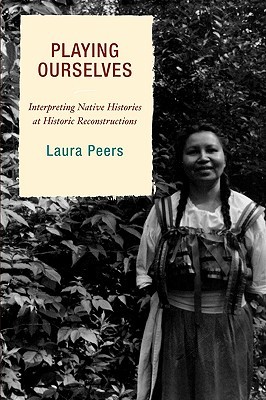
- We will send in 10–14 business days.
- Author: Laura Peers
- Publisher: Rowman & Littlefield Publishers
- ISBN-10: 075911062X
- ISBN-13: 9780759110625
- Format: 16.4 x 22.6 x 1.5 cm, minkšti viršeliai
- Language: English
- SAVE -10% with code: EXTRA
Reviews
Description
Across North America, hundreds of reconstructed Oliving historyO sites, which traditionally presented history from a primarily European perspective, have hired Native staff in an attempt to communicate a broader view of the past. Playing Ourselves explores this major shift in representation, using detailed observations of five historic sites in the U.S. and Canada to both discuss the theoretical aspects of Native cultural performance and advise interpreters and their managers on how to more effectively present an inclusive history. Drawing on anthropology, history, cultural performance, cross-cultural encounters, material culture theory, and public history, author Laura Peers examines Oliving historyO sites as locations of cultural performance where core beliefs about society, cross-cultural relationships, and history are performed. In the process, she emphasizes how choices made in the communication of history can both challenge these core beliefs about the past and improve cross-cultural relations in the present.
EXTRA 10 % discount with code: EXTRA
The promotion ends in 23d.13:52:17
The discount code is valid when purchasing from 10 €. Discounts do not stack.
- Author: Laura Peers
- Publisher: Rowman & Littlefield Publishers
- ISBN-10: 075911062X
- ISBN-13: 9780759110625
- Format: 16.4 x 22.6 x 1.5 cm, minkšti viršeliai
- Language: English English
Across North America, hundreds of reconstructed Oliving historyO sites, which traditionally presented history from a primarily European perspective, have hired Native staff in an attempt to communicate a broader view of the past. Playing Ourselves explores this major shift in representation, using detailed observations of five historic sites in the U.S. and Canada to both discuss the theoretical aspects of Native cultural performance and advise interpreters and their managers on how to more effectively present an inclusive history. Drawing on anthropology, history, cultural performance, cross-cultural encounters, material culture theory, and public history, author Laura Peers examines Oliving historyO sites as locations of cultural performance where core beliefs about society, cross-cultural relationships, and history are performed. In the process, she emphasizes how choices made in the communication of history can both challenge these core beliefs about the past and improve cross-cultural relations in the present.


Reviews